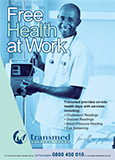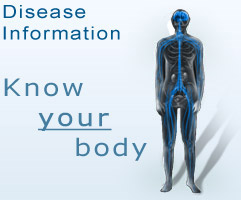Breast cancer
Breast cancer is still the most common cancer in females, even with the incidence of lung cancer in females increasing each decade. True hereditary breast cancer associated with specific genetic abnormalities is relatively uncommon and responsible for approximately 5% of breast cancer cases.
Most cancer patients also have a family history of cancer. Mammography, an x-ray of the breasts, is the most important testing method for the early detection of breast cancer. The value of breast self-examination, however, cannot be stressed enough, as a high proportion of breast lumps are still discovered by the patients themselves with doing regular self examination of breasts.
Diagnosis
The following tests are useful in making a diagnosis and determining the extent of the disease once the diagnosis has been made:
- mammography
- biopsy and/or removal of the breast lump for pathological analysis
- chest x-ray, ultrasound examination of the abdomen and bone scans are used to check for spread of cancer beyond the breast
- blood analysis as a medical evaluation of the spread of the disease as well as a baseline test for the relevant treatment (chemotherapy) may affect certain cells in the body.
Your doctor may require further investigation depending on your symptoms at the time of the tests.
The following may have an impact on the outcome after the patient has been diagnosed with cancer:
- age
- menopausal status
- general health of the patient
- stage of the disease at the time of the diagnosis
- characteristics of the primary tumour (where the cancer started) and
- various hormone receptor statuses.
Treatment options
Treatment will depend on the nature and extent of the condition, as well as on your general state of health.
Breast cancer is treatable with surgery and radiation therapy, chemotherapy and hormonal therapy and often curable when detected in its early stages.
Surgery depends on the extent of the condition and can be either a partial resection (removal of breast tissue affected by the cancer) or total mastectomy (removal of the breasts). After partial resection, radiation therapy (cancer treatment using high-energy rays) is frequently administered to the remainder of the breast to reduce the risk for tumour recurrence. Some patients need radiation to the chest wall even after a mastectomy, as they still have a substantial risk for a relapse of their cancer. In most incidences additional chemotherapy and/or hormonal therapy is also given to reduce the risk of the cancer spreading to other body parts at a later stage. Hormonal therapy may produce symptoms of menopause (hot flushes) in women who have not yet entered menopause.
In advanced stages of the condition, chemotherapy, hormonal and radiation therapy is often used either alone or in combination with each other. Breast cancer remains a responsive condition (i.e. it can be treated) and major advances in treatment have been made over the past decade.
References
Cancer Monthly. Website: www.cancermonthly.com
GVI Oncology (South Africa). Website: http://www.cancercare.co.za
 TransmedBanner4.jpg)

